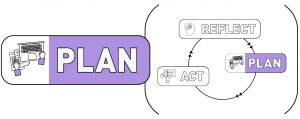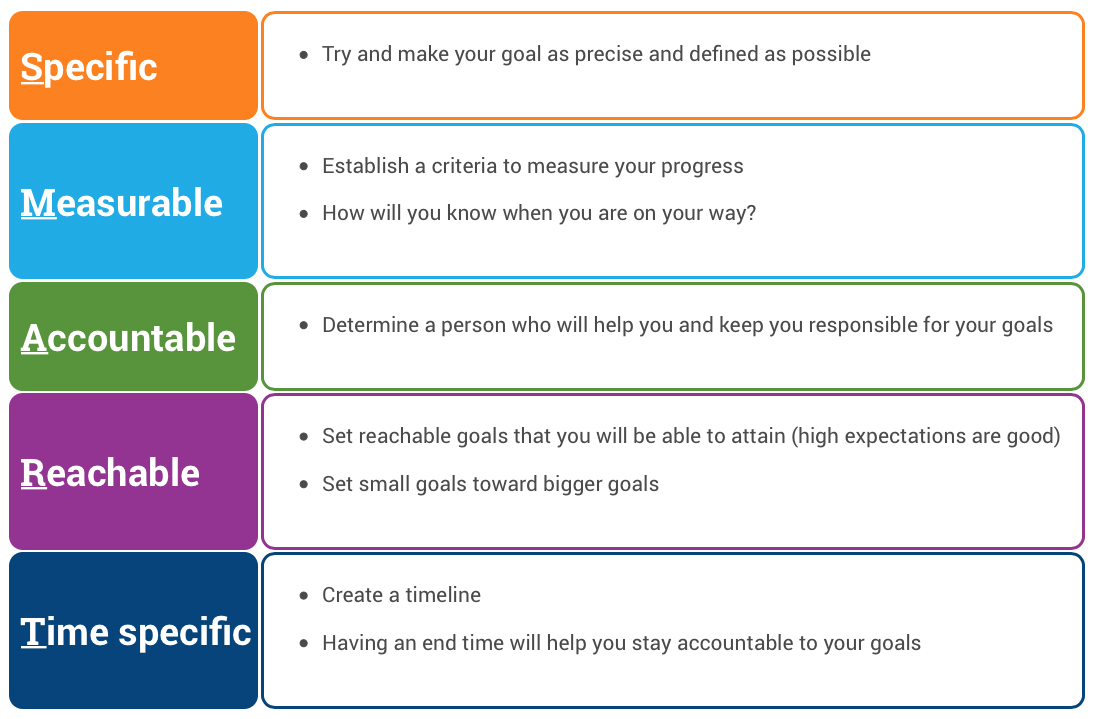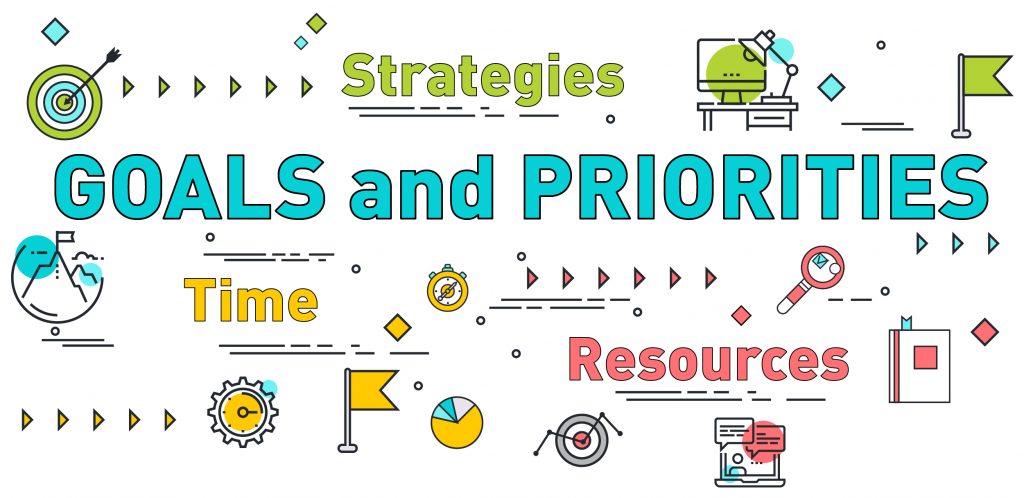Plan phase
Planning for success
Achieving success with SRL and a growth mindset requires knowing your priorities and setting goals.
During the reflect phase you outlined your priorities. Now, with these priorities in mind, you can set your goals. In the plan phase you will chart your course to attaining your goals through:
- Deciding on strategies
- Planning your time
- Identifying resources you need
What is a SMART goal?

In this section, you will develop and refine brainstormed goals and transform them into actionable statements that you will be able to work toward during this module. Your brainstormed goals will become SMART ones.
People who set SMART goals are more likely to achieve their target. Let’s take a look at the components of SMART goals. Transcript (.pdf, 11kb).

Complete Activity 10 to identify SMART goals.
Define and refine your goals

Complete Activity 11 below to outline your goals for the deadlines you’ve chosen and then refine them to make them more achievable.
Here are some examples of goals you may wish to work towards to help you get started!
- I will practice using a growth mindset voice and redirect myself whenever my mindset becomes fixed.
- I will construct a schedule for this semester and set priorities so that I stay on track.
- I will transform my previous goals into SMART goals.
- I will practice “present-time awareness” and mindfulness meditations so that I am more focused on the task at hand.
Planning involves identifying strategies and developing a plan and schedule to achieve your goals you set in the reflect phase. To plan, you will decide on strategies, plan your time, and identify the resources you need. By defining and refining your goals they will become more achievable.
Self-regulated learning can be achieved through the SRL cycle. The SRL cycle allows you to take strategic control of how you approach your goals and be prepared and willing to face any challenges and seize any opportunities that might arise as you work to make your goals your reality. The SRL cycle consists of three phases: reflect, plan, and act. Ideally, you should repeat this cycle multiple times as you create goals and tackle challenges.
The belief that your basic abilities can be developed and cultivated through hard work and dedication. Someone with a growth mindset views their basic skills and talents as a starting point, therefore creating a love of learning and resilience that is essential for great accomplishment. Great learners are made, not born.
SMART goals can be used in all aspects of your life and allow you to develop your goals into actionable statements that you can work towards, rather than goals that seem overwhelming or difficult. There are 5 components to a SMART goal: Specific, Measurable, Accountable, Reachable, and Time Specific.
A particular milestone in your semester or year that you are preparing for. The deadline could be an exam, assignment, competition, etc. The key idea is to identify specific timepoints using these deadlines so that you can check your progress toward your goals.


